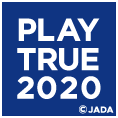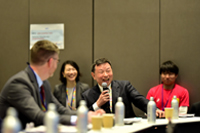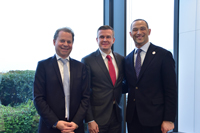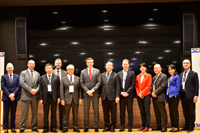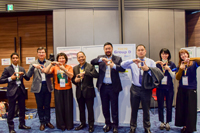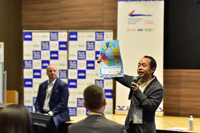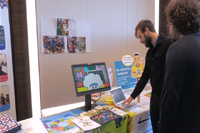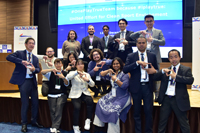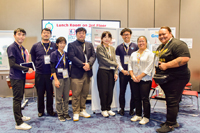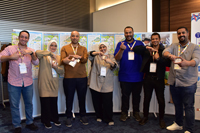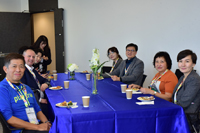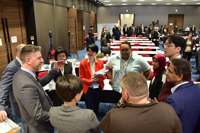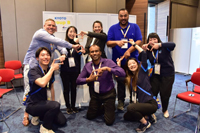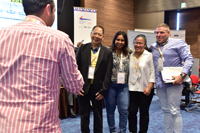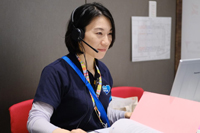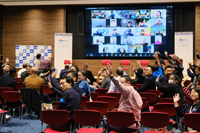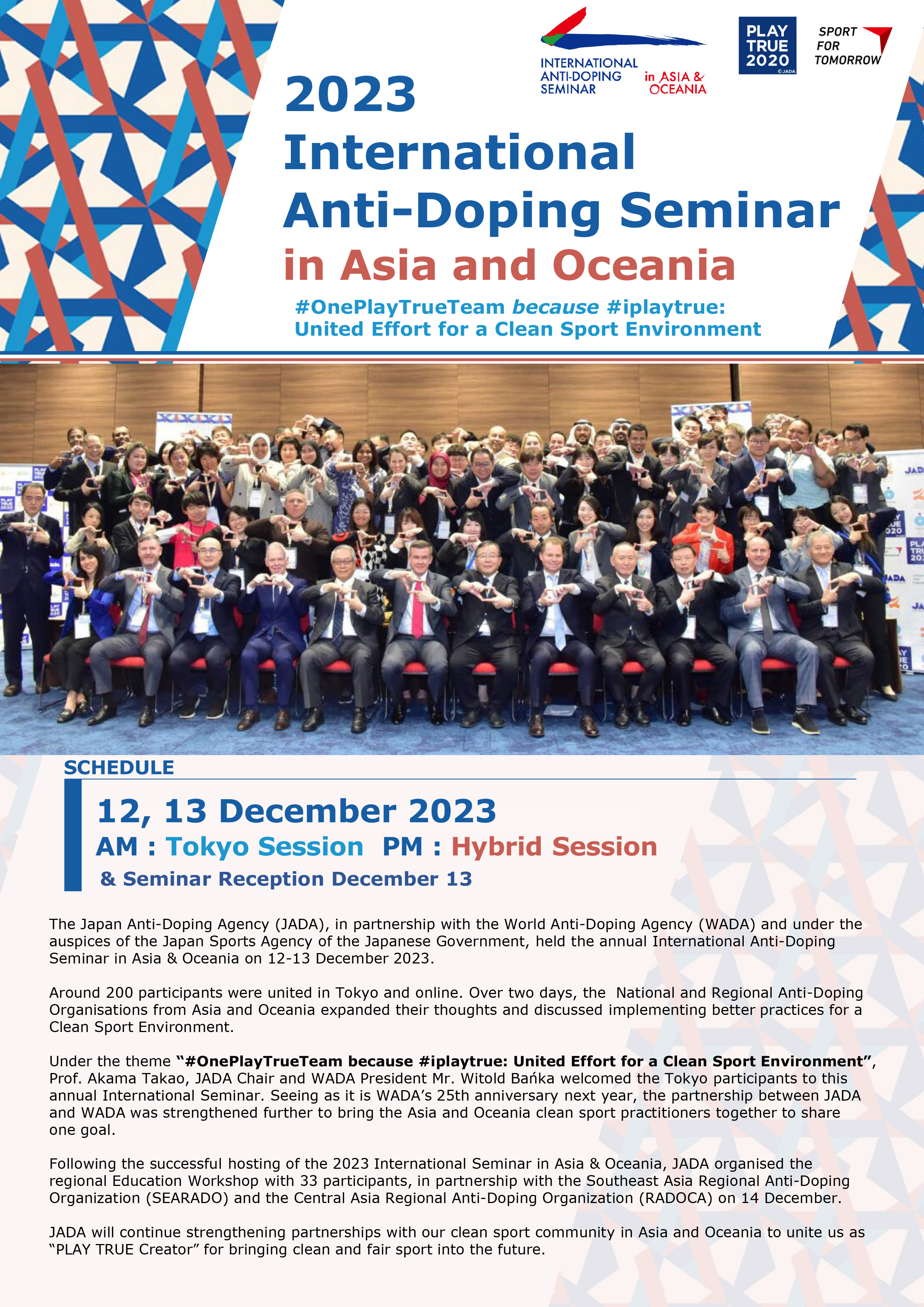International Anti-Doping Seminar in Asia and Oceania
Organised by

The Japan Anti-Doping Agency (JADA), in partnership with the World Anti-Doping Agency (WADA) and under the auspices of the Japan Sports Agency of the Japanese Government, held the annual International Anti-Doping Seminar in Asia & Oceania on 12-13 December 2023.
Around 200 participants were united in Tokyo and online. Over two days, the National and Regional Anti-Doping Organisations from Asia and Oceania expanded their thoughts and discussed implementing better practices for a Clean Sport Environment.
Under the theme “#OnePlayTrueTeam because #iplaytrue: United Effort for a Clean Sport Environment”, Prof. Akama Takao, JADA Chair and WADA President Mr. Witold Bańka welcomed the Tokyo participants to this annual International Seminar. Seeing as it is WADA’s 25th anniversary next year, the partnership between JADA and WADA was strengthened further to bring the Asia and Oceania clean sport practitioners together to share one goal.
Following the successful hosting of the 2023 International Seminar in Asia & Oceania, JADA organised the regional Education Workshop with 33 participants, in partnership with the Southeast Asia Regional Anti-Doping Organization (SEARADO) and the Central Asia Regional Anti-Doping Organization (RADOCA) on 14 December.
JADA will continue strengthening partnerships with our clean sport community in Asia and Oceania to unite us as “PLAY TRUE Creator” for bringing clean and fair sport into the future.
Supported by:
・International Testing Agency (ITA)
・International Paralympic Committee (IPC)
・Institute of National Anti-Doping Organisations (iNADO)
・Ministry of Foreign Affairs of Japan (MOFA)
・Japan Sport Council (JSC) Sport for Tomorrow
Celebrate as #OnePlayTrueTeam #iplaytrue:
United Effort for Our New Stage
AM
TOKYO
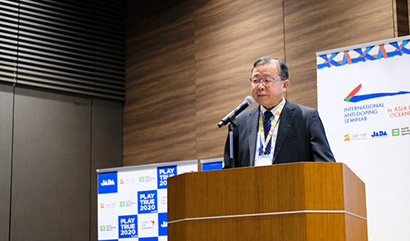
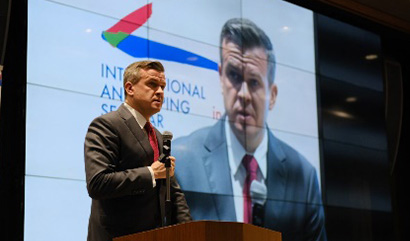
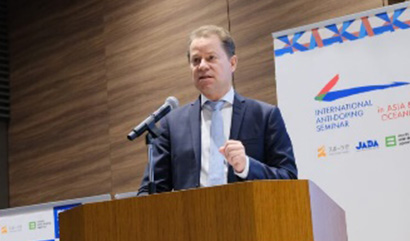
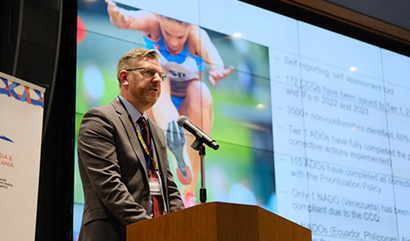
At the welcome remarks, Mr. Witold Banka was pleased to be in Tokyo to attend the International Seminar as the WADA President for the first time. He told the participants that this International Seminar is a great opportunity for sharing knowledge and expertise to promote clean sport. Such partnership and unity brings success to our journey to protect integrity, honesty, and respect in sport.
Mr. Olivier Niggli, Director General, WADA, presented some key achievements, including WADA’s governance reform, increased budget and strengthened athlete representation, notably as the Athlete Council and the Athlete Ombuds. He outlined WADA’s Strategic Plan from 2020-2024, highlighting performance indicators like leadership and collaboration. He encouraged the Asia/Oceania members to actively engage in the 2027 Code updating process, highlighting the importance of compliance for promoting a Clean Sport environment.
Mr. Kevin Haynes, WADA’s Director, Compliance and Standard, highlighted the success of the Code Compliance Monitoring Program in reducing non-conformities, contributing to global anti-doping efforts. He discussed trends from the Code Compliance Questionnaire (CCQ), noting the Asian region's strong investment in education. Looking to 2027, he emphasized challenges such as revising the Code and International Standards, with updated standards effective from 2024.
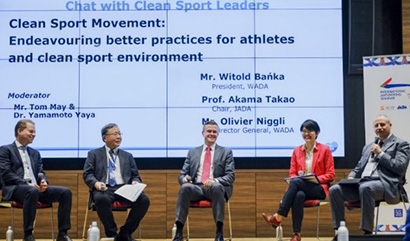
Prof. Akama mentioned JADA's Tokyo 2020 impact through its legacy project, PLAY TRUE 2020 Sport for Tomorrow, and partnership with the Organising Committee. Diverse panelists, including an International-Level athlete, a medical doctor, and a legal professional, offered unique insights. Mr. Banka recounted his Osaka doping testing experience, while Prof. Akama shared his "respect" ethos from rugby, and Mr. Niggli anticipated further evolution in the clean sport journey. Participants interacted with panelists for collective reflections and experiences.
PM
HYBRID
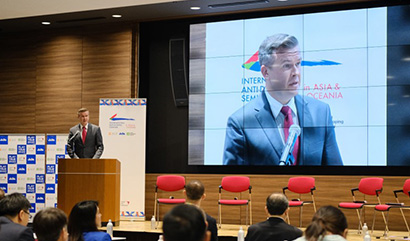
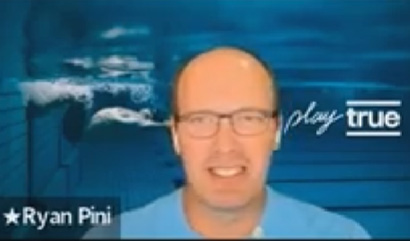
In his Keynote Welcome, Mr. Banka emphasized the importance of collaboration in achieving anti-doping success and reiterated WADA's commitment to supporting these efforts. Mr. Banka highlighted strategic priorities including increasing financial resources through independent sponsorship, fostering athlete-centered structures, developing anti-doping workforce as well as strengthening intelligence and investigation efforts, especially in Asia starting from 2025.
WADA Athlete Council Chair, Mr. Ryan Pini outlined the changing role as Athlete Council after the WADA Governance Reform, by emphasizing its central theme – “it’s all about the athlete.” He elucidated the seven roles of WADA’s Athlete Council and shared the launched “Ombuds Program” to facilitate athlete engagement as follows:
Role of WADA’s Athlete Council:
| 1. | Generate awareness and support for clean sport; | |
| 2. | Solicit and share athlete feedback on the World Anti-Doping Program; | |
| 3. | Act as ambassadors for WADA and clean sport; | |
| 4. | Support WADA’s Athlete Engagement activities at Major Events; | |
| 5. | Recommend effective ways to reach athletes and their entourage; | |
| 6. | Expand WADA’s reach by engaging with their governments, sports and regional/national sports organizations; | |
| 7. | Represent athletes in WADA's governance and expert committees. |
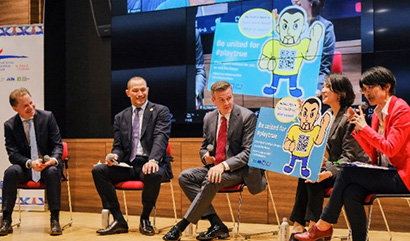
This session also highlighted the importance of integrity and athlete-centered clean sport efforts. The polls from the participants suggested the need for improvement on information provisions on supplement risks. The session concluded by stressing the critical role of an athlete-centered approach in shaping the future of anti-doping efforts with a transcending need of integrity and accountability. The panelist shared the necessity for protecting athletes' well-being and preserving the integrity of sport globally.
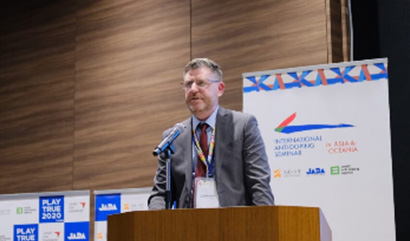
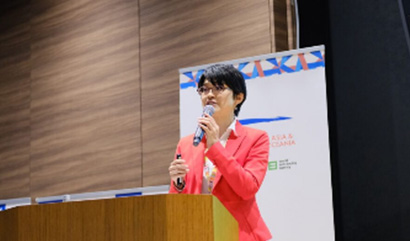
Moving together as #OnePlayTrueTeam: Creating Clean Sport
AM
TOKYO
#OnePlayTrueTeam Workshop:Stakeholders Engagement for the 2027 Code and International Standards
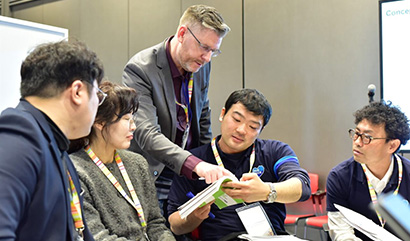
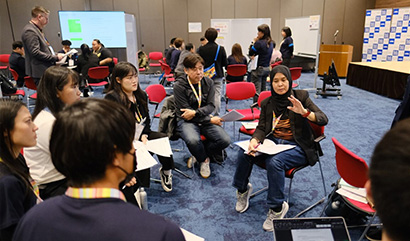
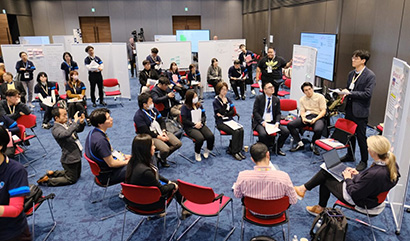
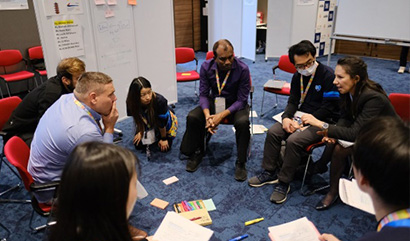
Topic A: 2027 Code & International Standard
for Testing (IST):Inputs and ideas
Topic A focused on three key areas: 1) Clarifying the criteria on athletes attempting to provide a lack of intent when an Adverse Analytical Findings (AAF) was questioned; 2) Revising the changes of results management of Whereabouts cases; and 3) Harmonizing sanctioning for Substances of Abuse and clarifications.
The IST discussion was focused on the timely analysis of the samples collected before a Major Event, including some set standard for returning the analysis, to minimize the risk of non-reporting before the events. Reflecting the transgender and gender diverse situation, promoting the calls for effective doping control procedures was discussed. The participants raised the need to harmonize the standardised regulations by taking into account the diverse cultures concerned and balancing biological with legal status. The need for DCO training with individual sensitivities was emphasized.
The enhancement of Athlete Biological Passport (ABP) was welcomed in general, while the participants wished to see more user-friendly ADAMS. Clarity on a criteria for long-term storage of samples and its discard was welcomed. The participants shared their thoughts that ultimately, meeting stricter requirements demands more resources within their organisations.
Topic B: International Standard for Education:
Inputs and Ideas
All participants had the chance to say “Yes/No” to the proposed direction of ISE. Tier 3-4 participants endorsed the direction of “raising the bar” in Education, acknowledging the potential benefits for clean sport environment, while expressing concern about the challenges in resources and limited access to the internet. Tier 1-2 countries also agreed on the overall direction of “raising the bar” and stressed the needs of educating the Athlete Support Personnel, particularly the coaches of international-level athletes. Discussions prioritized the structural needs of streamlining athlete pathway, which for many faces substantial hurdles within a country to establish the meaningful partnership.
PM
TOKYO
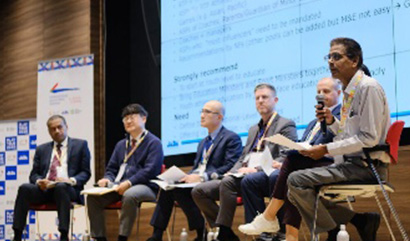
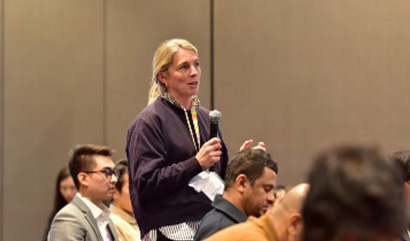
Mr. Asakawa, JADA CEO, contributed the insights from the Japanese context, highlighting the continuous cooperative relationships among NOC, NPC, NFs, and JADA. He advised not relinquishing coordination power but finding ways to garner financial and human resource support from national stakeholders.
PM
HYBRID
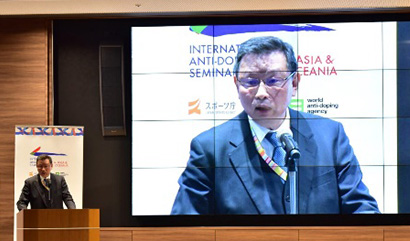
Additionally, he highlighted WADA's recent notable accomplishments, including the Guideline for Human Source Management, the Professional Standard for Testing Practitioners, and the revised Technical Document for Sport Specific Analysis (TDSSA).
The session “Clean Sport Education for Paris 2024 and beyond” consisted of 2 parts, the presentation from JADA and ITA.
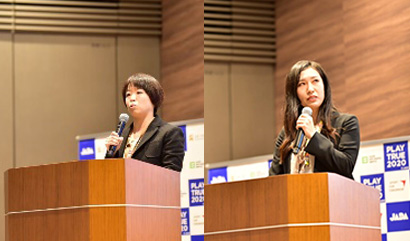
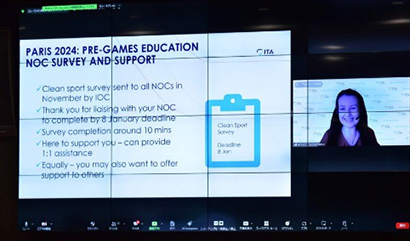
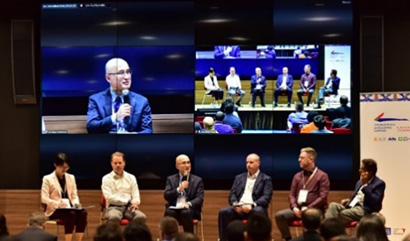
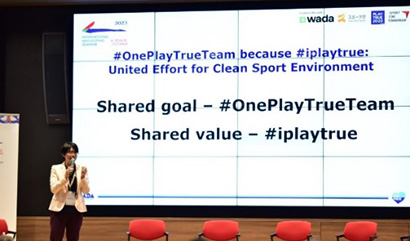
With the ISE coming into effect, Japan’s 4-year Education Strategic Plan in line with the 2021Code and the ISE was introduced. Its main area is to clarify “who is to be educated”, “by whom they are educated”, “why they should be educated”, and “how the education should be delivered, monitored and evaluated”. The Strategic Plan was developed into the partnership agreement, called “Major Event Agreement” between the Japanese Olympic Committee, the Japanese Paralympic Committee and JADA. This could be seen as good practice to collectively ensure all athletes and ASPs to be educated before the Major Event. Ms. Hori and Ms. Morokoshi stressed that education should not be one time, but continuous with a long-term vision to foster an individual’s lifelong clean sport behavior and values.
Ms. Irvine, Manager, Education, International Testing Agency (ITA), shared the plans of Pre-Games Education for the Winter Youth Olympic Games and Paris 2024. For the former event, the NOC Clean Sport Education Guide, ADEL for talented athletes competing at major games, webinar, and on-site education were introduced. For Paris 2024, she mentioned Clean Sport Survey, updated NOC Guide, webinar for athletes and ASP, and ADEL for Paris 2024 as the contents of Pre-Games Education. The importance of the partnerships sharing resources and information to the clean sport education community was emphasized.
At the Session “2027 Code and International Standards: Way forward Sharing from Tokyo session outcomes”, ensuring the online participants were to be engaged, at first, Mr. Gobinathan Nair shared the outcomes of the morning workshop in Tokyo. Then, various questions from the floor and on the online question board were raised. The questions included, among others, the possible idea of “education portfolios or passport” as testing history is done in ADAMS, the streamlined, useful resources for the Code and IS implementation, and operational independence.
Dr. Yamamoto finally summarized the outputs by looking back at the aims of this year’s International Seminar. She strongly encouraged the participants to take time for self-reflection and shared their take-aways, aiming to raise the bar as #OnePlayTrueTeam.
Some key words/phrases heard from the two-day session were summarized, including Partnership, United effort, Long-term vision, shared value. The importance of being united for the shared goal, that is, a global clean sport environment and sport values, was highlighted even though our resources and approach may differ.
Education Workshop:
International Standard for Education (ISE) in Action:
JADA led the Education Workshop with SEARADO and RADOCA
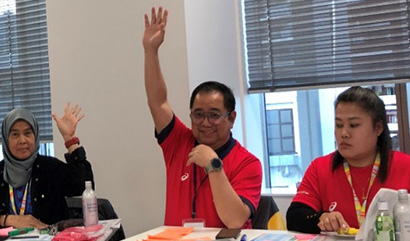
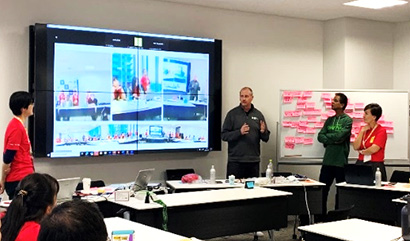
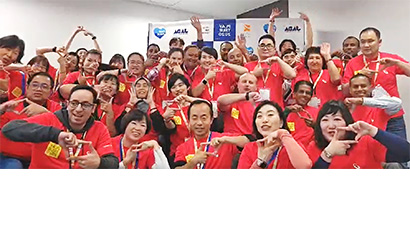
At the beginning of the Workshop, WADA President praised the commitment by all, and JADA pledged the continuous support of Education in Asia and Oceania through the Real Champion Education Package and inputs.
Participating countries (15):Brunei Darussalam, Fiji, Indonesia, Japan, Jordan, Kazakhstan, Korea, Kuwait, Laos, Malaysia, Maldives, Mongolia, Philippines, Singapore, and Turkmenistan
